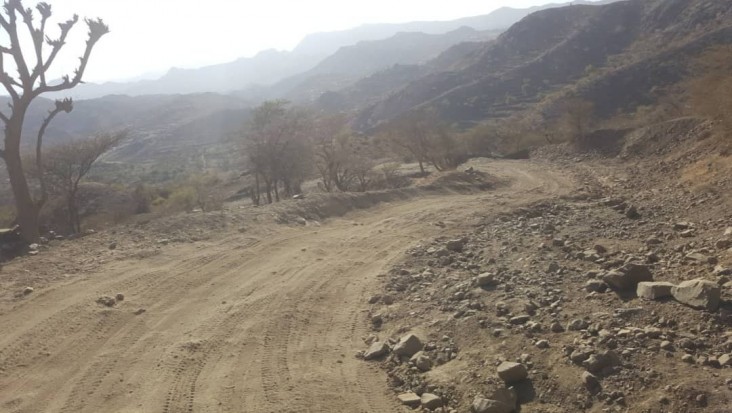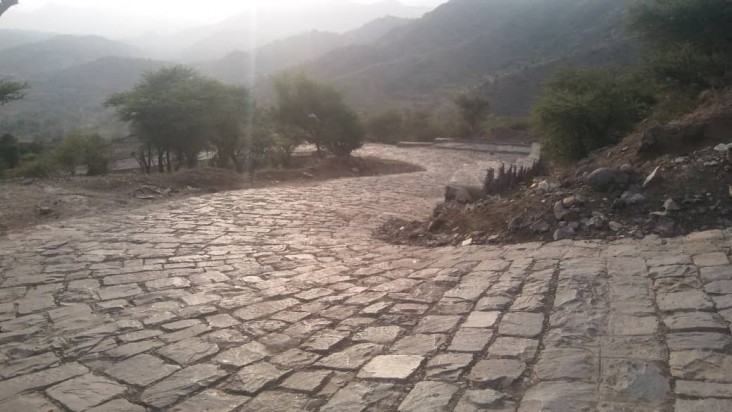Speeches Shim

The only road connecting the village of Shaab Al-Thakhri, which sits in a rural, mountainous area of Taiz Governorate, to the district market and other villages used to be a single-track dirt road destroyed by mud slides and flood torrents every rainy season. The road was rendered impassable except by four-wheel-drive vehicles, making transport near impossible for many, even during emergencies.
“If we had a sick person, we couldn’t get them to the hospital because an ambulance could not get into the village,” said Mohammed Abdurraqeeb, who was chosen by his village council to be one of 20 youth representatives in the district to solve the most pressing local community conflicts affecting youth.
The road had been at the center of a 15-year conflict between local authorities and village residents, spurring protests and discontent. “For the sake of public interest and fearing further escalation of the conflict that might turn into chaos, I found myself obliged to intervene in order to solve it,” said Mohammed, one of 80 youth Insider Mediators trained by the USAID-funded A Future Called Peace activity, which enhances the leadership role of Yemeni youth to transform local conflicts into opportunities for peaceful resolution.
Mohammed participated in workshops aimed to build the capacity of young adults in mediation, leadership skills, proposal development, and project management. Working with his fellow Insider Mediators, village council members, local authorities, and other community representatives, Mohammed facilitated a series of dialogues between the conflict parties to brainstorm solutions.

Despite a lengthy process to repair the trust between local authorities and their constituents, a joint solution was reached and signed in April 2019, both to repair the dangerous road and the relationships between residents and their government representatives.
Mohammed implemented the jointly agreed solution by announcing a call for quotations for local companies to conduct the road repairs, funded through money raised by the community members themselves. The repair work was completed in December 2019.
Mohammed believes resolution of the conflict and repairing the road will reduce families’ food insecurity, improve opportunities for youth, and save lives. Importantly, the process has strengthened trust between the local community and authorities.
“This project strengthens social relations and sustainable peace at the local level,” he said.
Mohammed’s story is just one example showcasing the impact of youth-focused peacebuilding programming, fostering both positive agency and leadership in local peace efforts. His self-initiated mediation and local fundraising success complemented the nine community-based initiatives supported by A Future Called Peace to resolve community-level conflicts. A Future Called Peace was implemented by Search for Common Ground from January 2018 through July 2019, following a two-year suspension due to the ongoing conflict in Yemen. A Future Called Peace equipped young Yemenis with the skills and relationships to act as positive agents of change – increasing communities’ social cohesion and resilience to violence. Building a generation of young peacebuilders who will drive, support, and campaign for nonviolence is the key to ensuring a peaceful future for Yemen.

Comment
Make a general inquiry or suggest an improvement.